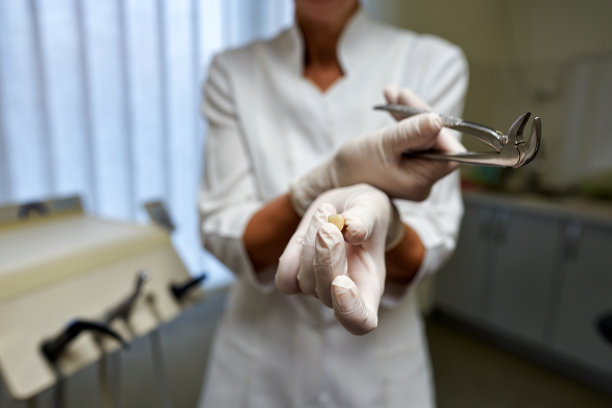Summary: Dental implantation is a transformative procedure that demands meticulous planning and execution to ensure optimal outcomes. This article provides essential guidelines and considerations to help patients navigate the process smoothly. Key factors covered include pre-surgery preparation, the surgical procedure itself, post-operative care, and long-term maintenance of dental implants. Each section details the steps necessary to achieve success and facilitate efficient recovery, ensuring that patients can enjoy lasting results. By understanding the process and adhering to these guidelines, patients can significantly enhance their chances of experiencing a successful dental implantation.
1. Effective Pre-Surgery Preparation Steps

Preparing for dental implant surgery is vital for success. Patients should begin by scheduling a comprehensive consultation with their dentist, who will evaluate their oral health and determine if they are suitable candidates for the procedure. This assessment may include X-rays or 3D imaging to analyze the jawbone structure and the positioning of adjacent teeth.
In addition to medical assessments, it’s essential to discuss any medications or supplements you are currently taking. Some medications can interfere with the healing process or increase the risk of complications. Being transparent about your health history allows the dentist to devise a personalized treatment plan that maximizes safety and effectiveness.
Moreover, mental and emotional preparation is equally important. Understanding the procedure, addressing any fears, and establishing a realistic timeline for recovery can help alleviate anxiety and set patient expectations accordingly. This proactive approach contributes significantly to a smoother surgical experience.
2. Understanding the Surgical Procedure
The dental implant surgery typically occurs in stages, beginning with the surgical placement of the implant itself, which often involves local anesthesia or sedation to ensure the patient’s comfort. The dental implant, usually made of titanium or ceramic, is inserted into the jawbone, serving as a durable root for the replacement tooth.
After the implants placement, a critical phase called osseointegration follows, wherein the jawbone fuses with the implant. This process can take several months, and adherence to post-surgical instructions plays a pivotal role in ensuring that this integration occurs smoothly. Regular follow-ups with the dentist during this period will help monitor the healing process.
Patients should be aware of potential discomfort and swelling following surgery. Utilizing prescribed pain management techniques and applying ice packs can help minimize these side effects. Communicating any unexpected symptoms to the dentist immediately is essential for addressing concerns and ensuring a successful recovery.
3. Importance of Post-Operative Care
Post-operative care is crucial for successful dental implantation. After the surgery, patients must adhere to specific care guidelines to facilitate healing. This includes maintaining proper oral hygiene practices, such as gentle brushing around the implant site and avoiding flossing until advised by the dentist.
Diet also plays a critical role in recovery. A soft food diet is generally recommended for the initial days following surgery to prevent irritation of the surgery site. Foods like yogurt, smoothies, and mashed potatoes can ensure nutritional needs are met while promoting healing.
Regular dental check-ups are vital during the healing phase. These appointments allow the dentist to monitor the implants integration and promptly address any issues that may arise. Following the dentists recommendations for post-operative visits will significantly improve the chances of a successful outcome.
4. Long-Term Maintenance of Dental Implants
Once the dental implant has successfully integrated with the jawbone and has healed, maintaining it becomes paramount. Good oral hygiene must be prioritized, including regular brushing and flossing, to prevent gum disease and ensure the longevity of the implant.
Routine dental check-ups should continue at least twice a year, as these visits allow the dentist to assess the health of the implant and surrounding tissues. Early detection of potential issues can prevent more serious complications in the future.
Furthermore, lifestyle factors such as smoking and excessive alcohol consumption can adversely affect the health of dental implants. Patients should be encouraged to adopt healthier habits to maximize the success and longevity of their implants, focusing not only on oral health but overall well-being.
Summary:
The roadmap to a successful dental implantation process lies in meticulous pre-surgery preparation, a clear understanding of the surgical procedure, diligent post-operative care, and commitment to long-term maintenance. By following these essential guidelines, patients can significantly enhance their recovery experiences and ensure the durability of their dental implants, leading to a healthier smile.
This article is compiled by Vickong Dental and the content is for reference only.
Vickong Dental
Vickong Dental is a large medical group established in Hong Kong in 2008 by professors from well-known medical universities in Guangdong and Hong Kong, as well as medical doctors from key national '985' universities (including Master's supervisors and senior professors). The chain of branches brings together expert dentists with PhDs and Master's degrees from Hong Kong and Mainland China, committed to providing high-quality dental treatment.
"Vickong Dental Practices the University Motto of 'Healing and Serving Society,' with a Stable Operation for Sixteen Years. It Has Been honored with Hong Kong Enterprise Leaders's Choice,' and is a Global Trusted Implant Center for the Nobel Implant System. Recommended by Hong Kong Metro Broadcast and Guangdong Television, it Serves Customers from Over Thirty Countries and Regions, Gaining the Trust and Favor of Citizens from the Guangdong-Hong Kong-Macau Greater Bay Area and Surrounding Cities.

Thousands of customers' unanimous praise
The most recognized and highly recommended dental service by customers in the Guangdong-Hong Kong-Macau Greater Bay Area
We Ensure You Receive Detailed Care and Attention Here
Hong Kong standards, Shenzhen prices, Your Trusted English-speaking dentists

Vickong Dental Medical-Grade Instrument Disinfection Process
Vickong Dental Medical-Grade Instrument Disinfection Process

Vickong Dental Chain: A Warm and Comfortable Environment for Treatment






Appointment Hours

Q&A
Why choose Vickong Dental?
Vickong Dental practices the university motto 「Medicine to Benefit Society」, with each branch bringing together highly qualified dentists with doctoral and master’s degrees from Hong Kong and the Mainland, and has maintained seventeen years of steady operation。Recipient of 「2024 Hong Kong Enterprise Leaders Brand」, 「2025 Hong Kong Enterprise Leaders Brand」, a Nobel Biocare Global Trusted Implant Center, and a brand recommended by Metro Radio Hong Kong and Guangdong TV。
To date, we have served customers from more than thirty countries and regions,earning exceptionally high word-of-mouth recognition and trusted recommendations from residents across the Guangdong-Hong Kong-Macao Greater Bay Area and surrounding cities
We have eight major branches in Zhuhai、Shenzhen,and a consultation and service assurance center in Hong Kong,so you can book a free consultation at any time for any questions,which is very reassuring.
If I do not accept the quotation after the CT scan, will I be charged??
No! As long as the actual treatment has not started, you will not be charged any fees.
Will there be any additional charges during the treatment process?
No, there won’t be any additional charges. Before treatment begins, we will clearly explain the treatment plan and its corresponding fees. Only after the patient agrees and signs the consent form will we proceed with the dental service.
Can I pay in Hong Kong dollars?
Yes. Vickong Dental accepts payment in Hong Kong dollars. The amount will be converted based on the exchange rate of the day, and the applicable rate will be clearly communicated to you in advance.
Can I reschedule my appointment at any time?
Yes. Please contact us via **WeChat** or **WhatsApp** as early as possible, providing your original appointment time and details, along with your preferred new date and time slot for rescheduling.













